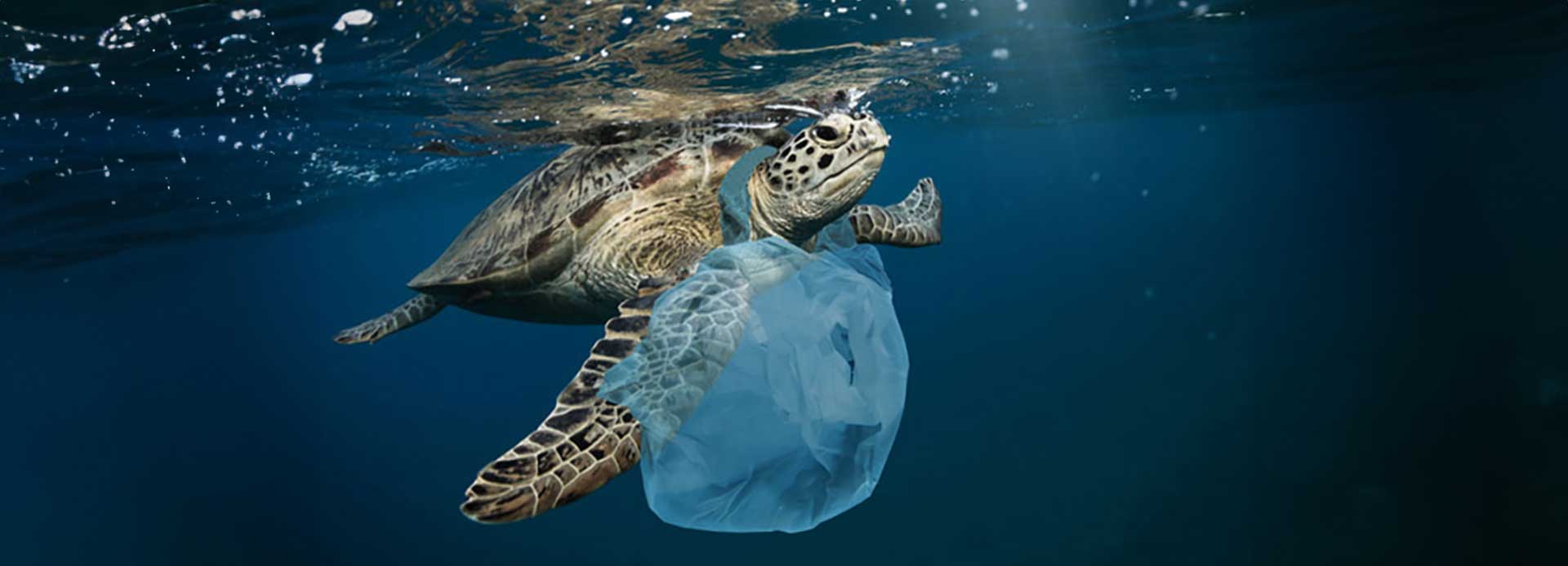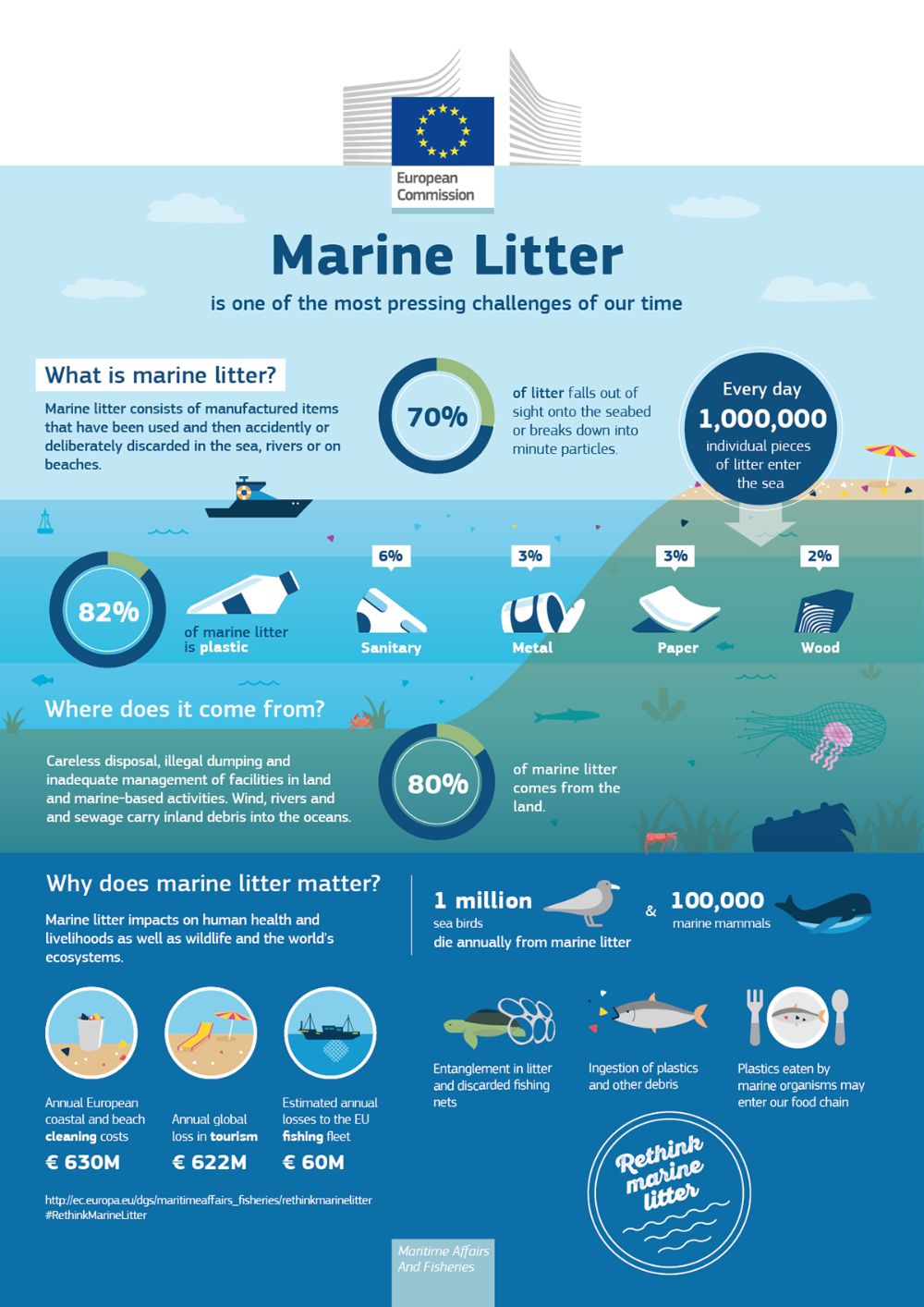
Marine Litter is one of the most pressing challenges of our time. Every day 1,000,000 individual pieces of litter enter the sea. Marine litter poses an escalating threat to the biodiversity of our oceans. With EU funding, Europe’s leading centres of excellence have launched a multidisciplinary initiative to address this issue, combining social efforts with a variety of advanced technological solutions.
An estimated 19-23 million tonnes of plastic enter aquatic environments annually, a figure projected to rise to 54 million tonnes by 2030. This escalating issue calls for urgent action.
To address this, the EU Mission: Restore our Ocean and Waters by 2030 aims to reduce plastic waste in the sea by at least 50% and cut microplastics released into the environment by 30%, in alignment with the EU Zero Pollution Action Plan. Through the development, demonstration, and implementation of innovative solutions, the Mission seeks to prevent and eliminate pollution, while protecting and restoring aquatic ecosystems and biodiversity.
Furthermore, the EU’s 2030 Biodiversity Strategy, a key component of the European Green Deal, focuses on restoring ocean health. A central goal is to protect 30% of the EU’s seas by 2030, with 10% of that under strict protection. To tackle these challenges, EU-funded researchers are studying how plastics are transported to the ocean and exploring sustainable, biodegradable alternatives for plastic packaging. They are also working on improving waste and wastewater management and enhancing recycling technologies.
A Plastic-Free Ocean, A Dream
This new CORDIS Results Pack highlights 12 EU-funded Horizon research projects aimed at reducing the impact of marine litter, addressing the issue from source to sea through prevention, elimination, mitigation, and monitoring.
Marine life can become entangled in plastic, leading to blockages in their digestive tracts that hinder feeding and result in behavioral changes. Additionally, invasive species such as crabs, mollusks, and even fish can travel across the ocean by attaching themselves to or inhabiting plastic waste.
The Pack emphasizes the potential for these solutions to be scaled, replicated, and adopted by various stakeholders responsible for implementing measures to reduce pollution at local and regional levels.
The outcomes of these projects will contribute to the EU’s objective of cutting plastic pollution to levels that are no longer harmful to human health or natural ecosystems while staying within the planet’s environmental limits and creating a toxic-free environment.
Social Strategy
Local communities are incentivized through a crowdsourcing smartphone app that offers financial compensation. However, perhaps the greatest motivator is the social awareness created through workshops and virtual reality demonstrations, which highlight the positive impact of removing marine litter on local economies. Cleaner, more diverse ecosystems benefit businesses, local communities, and tourists alike.
Community engagement was fostered through social media campaigns, encouraging voluntary clean-up activities and testing marine litter recycling efforts, with tangible results such as trash bins and bags.
Notably, the Dutch Royals participated in a project workshop on the Caribbean island of Sint Maarten for the In-No-Plastic science fair, *Nature Under Threat*, one of the hands-on activities organized by project partners.
Technical Approaches
Plastics are known to harm ecosystems at the macro level, where they can be ingested or cause entanglement. However, when exposed to solar UV radiation and physical factors like wind and waves, plastics break down into smaller fragments – microplastics (less than 5 mm) and nanoparticles (less than 100 nm).
“Depending on the aquatic environment and the type and size of the plastic litter, various technologies can be applied,” says In-No-Plastic project coordinator Ben Alcock. “Technical strategies include agglomeration systems to collect nano- and micro-particles, eco-friendly chemistries that help micro-particles stick together, and filtration systems designed to remove both macro- and microplastics from water.”
Additionally, autonomous collection robots have shown significant potential in removing plastic litter from beaches and shores. These robots can operate independently, using vision systems to identify plastic debris and robotic arms to collect and transport it for recycling. Social rewards and data-driven monitoring systems further encourage the hand-picking of litter.


![Which countries are winning the AI race [Infographic] hero-image-infographic-Digital-Evolution-Series-Part-1](https://www.skillzme.com/wp-content/uploads/2024/11/hero-image-infographic-Digital-Evolution-Series-Part-1-200x200.jpg)
![State of Cybersecurity 2024 and Beyond [Infographic] hero-image-2024-Global-ISACA-State-of-Cybersecurity](https://www.skillzme.com/wp-content/uploads/2024/11/hero-image-2024-Global-ISACA-State-of-Cybersecurity-200x200.jpg)
![A Visual Guide to AI Adoption by Industry [Infographic] hero-image-infographic-Digital-Evolution-Series-Part-2](https://www.skillzme.com/wp-content/uploads/2024/11/hero-image-infographic-Digital-Evolution-Series-Part-2-200x200.jpg)


Recent Comments